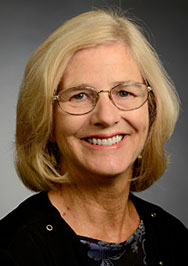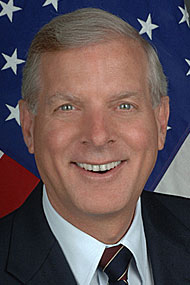The ramifications for postwar international order and the implications for U.S. leadership in the 21st century will be the focus of a Lawrence University Povolny Lecture Series in International Studies address.

Karen Mingst, professor emeritus at the University of Kentucky’s Patterson School of Diplomacy and International Commerce, presents “U.S. and International Institutions: Durable and Disrupted” Monday, Oct. 23 at 7:30 p.m. in the Wriston Art Center auditorium. The event is free and open to the public.
According to Mingst, long-standing U.S. ambivalence, even hostility, toward international institutions is rooted in both political culture and domestic politics. She will examine three attributes of American culture — exceptionalism, views on sovereignty, and exemptionalism — and domestic factors such as contrasting views of different presidents and Congressional action regarding budgets in explaining this ambivalence.
The presentation also will look at U.S. ambivalence toward international law, including the Trump administration’s proposed disengaging from international courts, terminating participation in or calling for renegotiation of international agreements such as NAFTA, the Paris Agreement and the Iran nuclear agreement and halting negotiations on new agreements.
Mingst says in trying to overturn the hegemonic bargain struck at the end of World War II with NATO and the United Nations, in which the U.S. would pay the greater share of the costs in the interests of preserving the public good, the Trump administration has expressed dissatisfaction louder and with greater forcefulness than other administrations.
A specialist is international law and international cooperation, Mingst retired from the University of Kentucky in 2015. A two-time Fulbright Fellowship recipient, she holds a Ph.D. from the University of Wisconsin and is the author or co-author of five books, including “International Organizations: The Politics and Processes of Global Governance.”
The theme of the 2017-18 Povolny Lecture Series is “Rethinking Cold War Alliances: Obsolete or Evolving?” The series, named in honor of long-time Lawrence government professor Mojmir Povolny, who passed away in 2012, promotes interest and discussion on issues of moral significance and ethical dimensions.
About Lawrence University
Founded in 1847, Lawrence University uniquely integrates a college of liberal arts and sciences with a nationally recognized conservatory of music, both devoted exclusively to undergraduate education. It was selected for inclusion in the book “Colleges That Change Lives: 40 Schools That Will Change the Way You Think About College.” Engaged learning, the development of multiple interests and community outreach are central to the Lawrence experience. Lawrence draws its 1,500 students from nearly every state and more than 50 countries.
